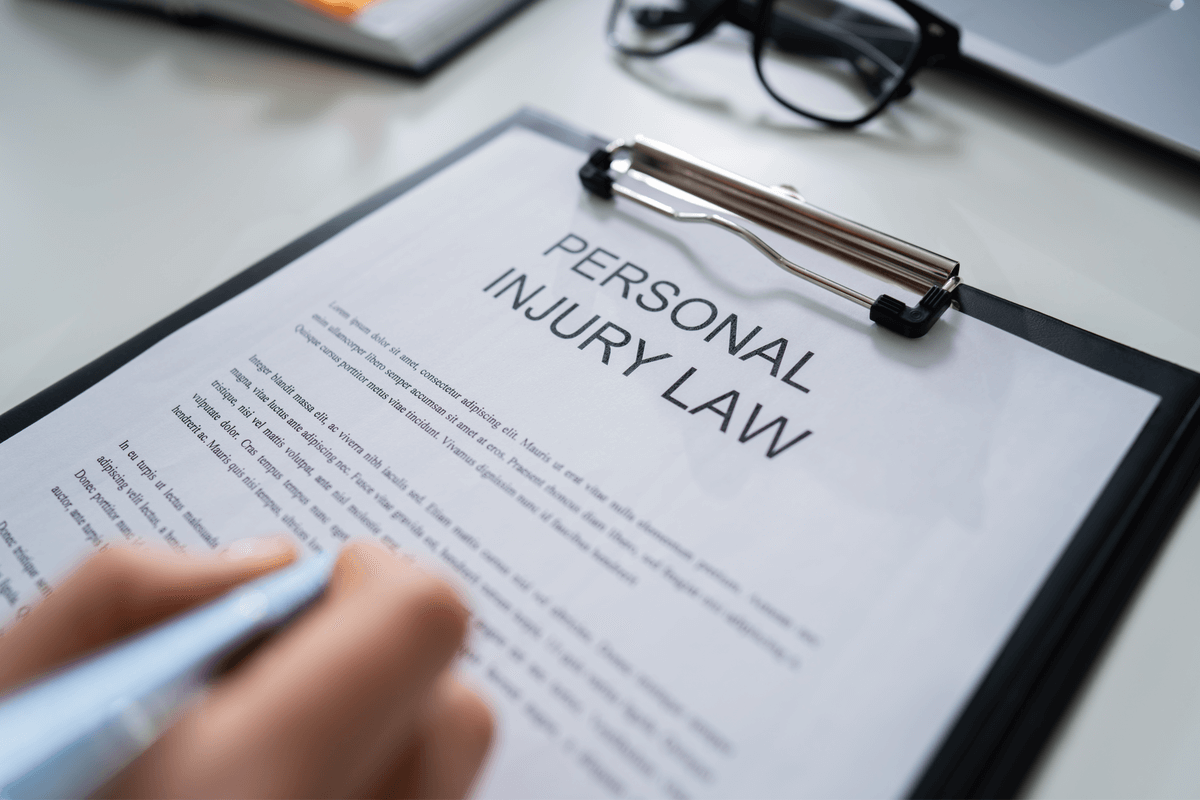
Before boarding the Titan submersible vessel to view the wreck of the Titanic, the ill-fated passengers signed a waiver exempting the parent company, Oceangate, from liability for injury, death and emotional trauma. However, when the pilot and passengers were tragically killed when the vessel imploded, CBS news raised the question: in spite of the waiver, could the families of the victims still sue Oceangate for the emotional trauma caused by the death of their loved ones?
Emotional trauma often remains overshadowed by physical injuries in personal injury cases. While broken bones and scars are visible, emotional wounds are not, making them less acknowledged. Yet, emotional distress can have a long-lasting impact on a person’s well-being. It can manifest in various forms such as anxiety, depression, or even post-traumatic stress disorder (PTSD). These psychological effects can hinder one’s ability to return to a normal life, affecting relationships, work, and overall happiness. In legal terms, emotional trauma can be considered a form of non-economic damage, meaning it doesn’t have a direct cost but still impacts a person’s life significantly.
Psychological scars can be as debilitating as physical injuries, yet they often go unnoticed or unaddressed. Emotional trauma can significantly affect the recovery process after an accident. For instance, someone who has been in a car crash may develop a fear of driving or even riding in a vehicle. This fear can limit mobility, leading to missed opportunities for work or social activities. Similarly, the experience of emotional trauma can disrupt sleep patterns, contribute to mood swings, and even affect appetite. All these factors can slow down the healing process for physical injuries, as a stressed mind can impede the body’s natural ability to repair itself. In sum, emotional trauma doesn’t just affect mental health; it has a ripple effect that can hinder overall recovery and quality of life.
In legal settings, emotional distress is gaining more acknowledgment as a legitimate form of suffering deserving compensation. Courts often look at the severity and duration of emotional trauma when determining awards in personal injury cases. Emotional distress can be categorized into two types: negligent infliction and intentional infliction. Negligent infliction occurs when someone didn’t intend to cause emotional harm but did so through carelessness. Intentional infliction, on the other hand, happens when someone deliberately causes emotional harm. Courts also consider the credibility of the claim, often requiring medical records or expert testimony to substantiate the emotional distress. While it may not be as straightforward as proving a physical injury, emotional distress is increasingly being recognized as a significant component of personal injury cases.
When it comes to personal injury cases, financial compensation often focuses on tangible losses like medical bills or lost wages. However, emotional trauma is also a factor influencing the amount awarded. Courts usually categorize emotional distress as a type of non-economic damage. Unlike a hospital bill, it’s hard to put a price tag on emotional suffering. Various methods are used to calculate these damages. One common approach is the “multiplier method,” where the total economic damages are multiplied by a certain number, often determined by the severity of emotional distress. Another approach is the “per diem” method, which assigns a daily value to emotional suffering. While calculating compensation for emotional trauma can be complex, courts are paying more attention to personal injury cases.
Psychologists play a key role in shedding light on the complexities of emotional trauma in personal injury cases. According to mental health experts, emotional distress can manifest in various ways, from anxiety and depression to more severe conditions like post-traumatic stress disorder (PTSD). These psychological impacts can have a long-term effect on a person’s ability to function normally in daily life. Psychologists also note that emotional trauma can exacerbate physical injuries, making the recovery process more challenging. For example, stress hormones can slow down the body’s natural healing mechanisms. Furthermore, mental health professionals use validated scales and diagnostic tools to assess the level of emotional distress, providing a more objective measure of suffering. Their expertise offers valuable perspectives increasingly being considered in personal injury litigation.
Emotional distress and physical injury are both common outcomes of accidents, but they differ in several ways. Physical injuries are usually visible and can be easily documented through medical records, making them more straightforward to prove in court. Emotional distress, on the other hand, is less tangible and often requires psychological evaluations to substantiate. While physical injuries have a direct economic cost, such as medical bills or lost wages, emotional distress falls under the category of non-economic damages, which are harder to quantify. Moreover, physical injuries often heal over time, but emotional scars can linger, affecting long-term mental health and quality of life. Despite these differences, both types of injuries are increasingly being recognized in personal injury cases as factors deserving of compensation.
Proving emotional trauma in a personal injury case can be a complex task due to its intangible nature. Unlike physical injuries, where medical records and X-rays serve as clear evidence, emotional distress often requires a different set of proofs. Medical records from psychologists or psychiatrists can be valuable in substantiating claims of emotional trauma. Journals or diaries detailing the emotional struggles following an accident can also serve as evidence. Witnesses, such as family members or friends who can attest to behavioral changes or mood swings, can strengthen a case. Some courts may even consider expert testimony from mental health professionals to gauge the severity of emotional distress. While proving emotional trauma may be challenging, proper documentation and credible evidence can make a compelling case for its inclusion in personal injury claims.

Managing emotional trauma after an injury involves a multi-faceted approach. Psychological experts often recommend a combination of therapy and medication to address symptoms like anxiety, depression, or PTSD. Cognitive-behavioral therapy (CBT) is one method that has shown promise in helping individuals understand and change their thought patterns, leading to better emotional well-being. Physical activity is another strategy; even simple exercises can release endorphins, which naturally elevate mood. Mindfulness and meditation techniques can also help in focusing the mind and reducing stress levels. Support from family and friends plays a vital role in emotional recovery, offering a network of care and understanding. While each person’s journey is unique, these coping mechanisms can offer some relief and contribute to a more holistic recovery process.
If you have suffered emotional trauma from an injury, contact us online, or call our office at (304) 317-7786.

Attorney Timothy Manchin established the Manchin Injury Law Group in 2011 after his law partner of more than 25 years became a West Virginia circuit court judge. His focus is on helping individual clients and entire families victimized by negligent acts.
We offer a free initial consultation at our office in the Manchin Professional Building — our home since 1983 — conveniently located in Fairmont.
If you are unable to visit our firm, we can come to your home or hospital room.
Fill out the form below to get in touch!